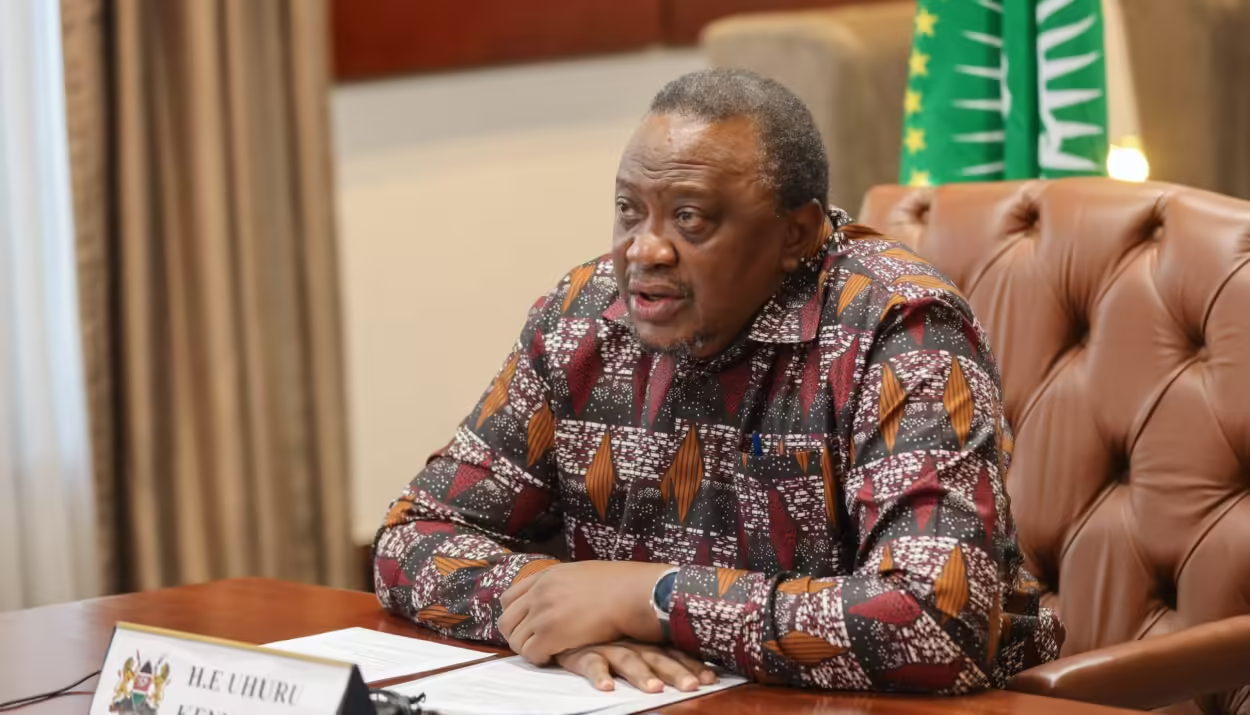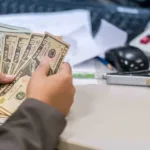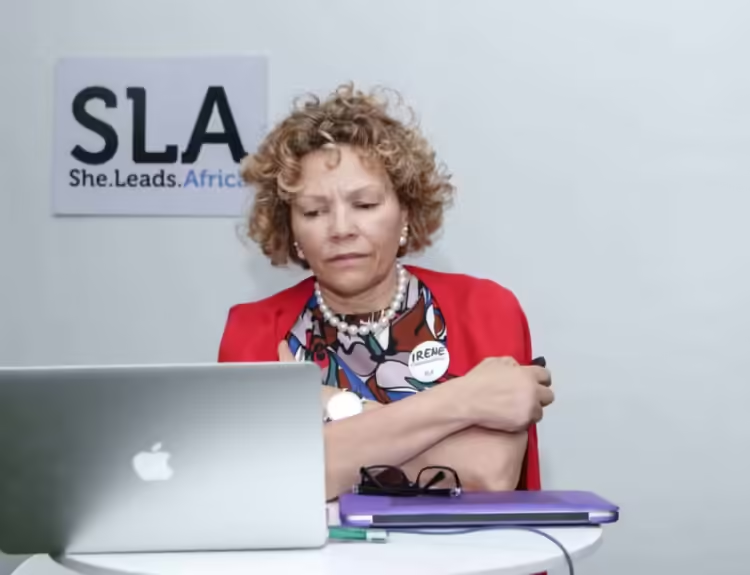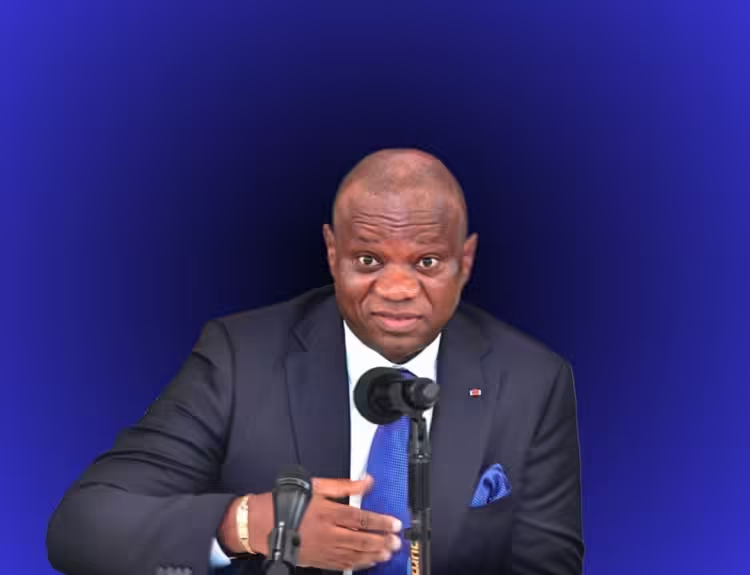On a March morning in 2023, television screens across Kenya flickered with images that would have once seemed unthinkable. Hundreds of people had invaded Northlands, the sprawling 11,000-acre ranch and planned mixed-use estate on Nairobi’s northeastern edge linked to the Kenyatta family. They cut down trees, looted livestock, and set fires as police stood by.
The attack, coming amid rolling anti-government protests, was widely seen as political retaliation against Uhuru Kenyatta, Kenya’s president from 2013 to 2022 and heir to the country’s most famous political dynasty.
The assault on Northlands was more than an act of vandalism. It was symbolic. For decades, the Kenyatta family’s fortune has rested on a foundation of land acquired during and after Kenya’s independence.
That wealth has since been extended into banking, dairy, media, and offshore holdings. But land remains its bedrock, and also its greatest vulnerability—an asset class that is illiquid yet politically combustible in a country where debates about land ownership, inequality, and historical injustice never quite recede.
Today, the Kenyatta empire stretches across public and private markets. It includes a significant stake in NCBA Group, Kenya’s third-largest bank by assets, where annual dividends provide steady liquidity. It encompasses Brookside Dairy, the East African milk processor that supplies millions of households and counts French multinational Danone as a shareholder.
It involves Mediamax, a media house with declining revenues but continuing political value. And it includes offshore trusts that were revealed in the 2021 Pandora Papers to hold tens of millions of dollars in stocks and bonds.
Pinning down a single number for the Kenyatta fortune is nearly impossible. Kenya lacks the transparency of Western capital markets, valuations for private companies are opaque, and land values vary wildly depending on zoning, infrastructure, and political stability.
Yet a conservative triangulation suggests the family controls assets worth at least half a billion dollars, and possibly much more if prime land like Northlands is marked to market. What is clear is that the Kenyattas remain among Kenya’s wealthiest and most powerful families, their fortunes inseparable from the country’s political economy.
Contents
Banking: A transparent anchor
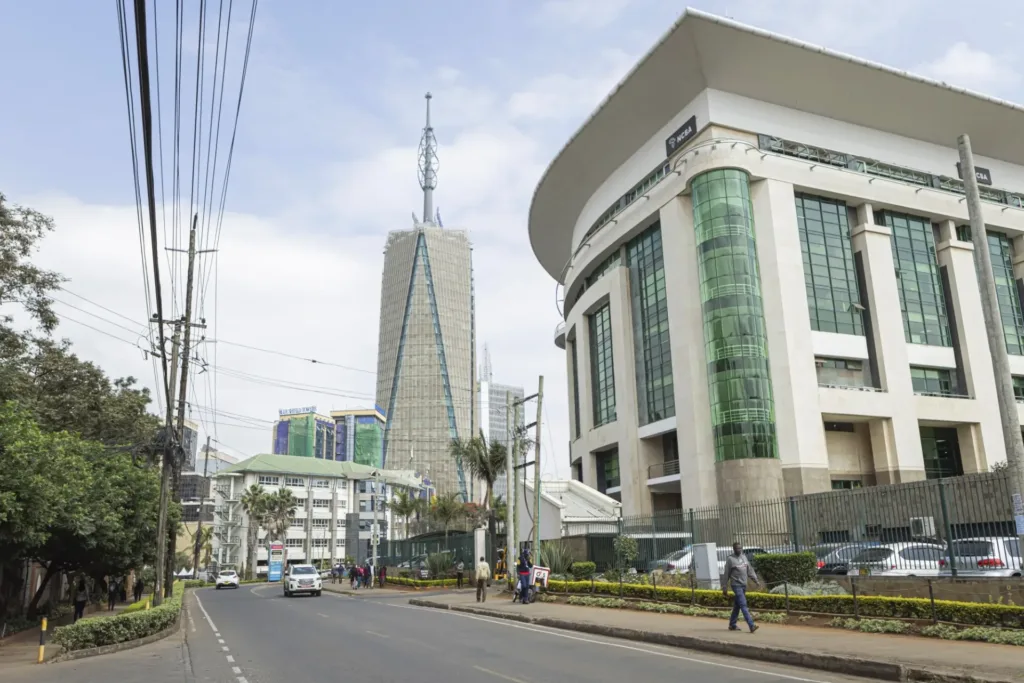
If land is the Kenyatta fortune’s symbolic heart, banking is its transparent anchor. In 2019, the family’s Commercial Bank of Africa merged with NIC Bank to form NCBA Group Plc, now the third-largest bank in Kenya by assets. The merger brought together two of the country’s most prominent business dynasties: the Kenyattas, who had controlled CBA, and the Ndegwa family, owners of NIC.
Post-merger disclosures and subsequent filings show that the Kenyattas, through investment vehicles such as Enke Investments, emerged with one of the largest single stakes in the new entity. Analysts and local media reports place that holding at about 13–14 per cent, roughly on par with the Ndegwas’ position.
That stake is worth real money. By late August 2025, NCBA traded at around KES 62–63 per share on the Nairobi Securities Exchange, implying a market capitalisation of roughly KES 105–110 billion ($810–850 million). A 13 per cent share translates to around KES 14–15 billion ($110–115 million) in market value for the Kenyatta bloc.
More importantly, NCBA is a consistent dividend payer. In 2024, the bank declared KES 8.25 billion in dividends. At their ownership level, the Kenyattas collected nearly KES 1 billion ($7.7 million) in cash.
For a family empire with vast illiquid land and private-company stakes, that stream of liquid income is crucial. It funds operations, stabilises cash flow, and provides a hedge against the political volatility that can erode other parts of the portfolio. It also anchors the family’s reputation as serious players in the formal economy.
NCBA itself is a well-run bank. It posted KES 21.5 billion in after-tax profit in 2024, up 15 per cent from the previous year, supported by growth in lending and a strong position in asset finance.
Its assets totalled KES 660 billion, making it a systemic player in Kenya’s financial system. In an equity market battered by low investor confidence, NCBA has outperformed peers, offering the Kenyattas both capital appreciation and reputational ballast.
Dairy: Brookside’s regional muscle
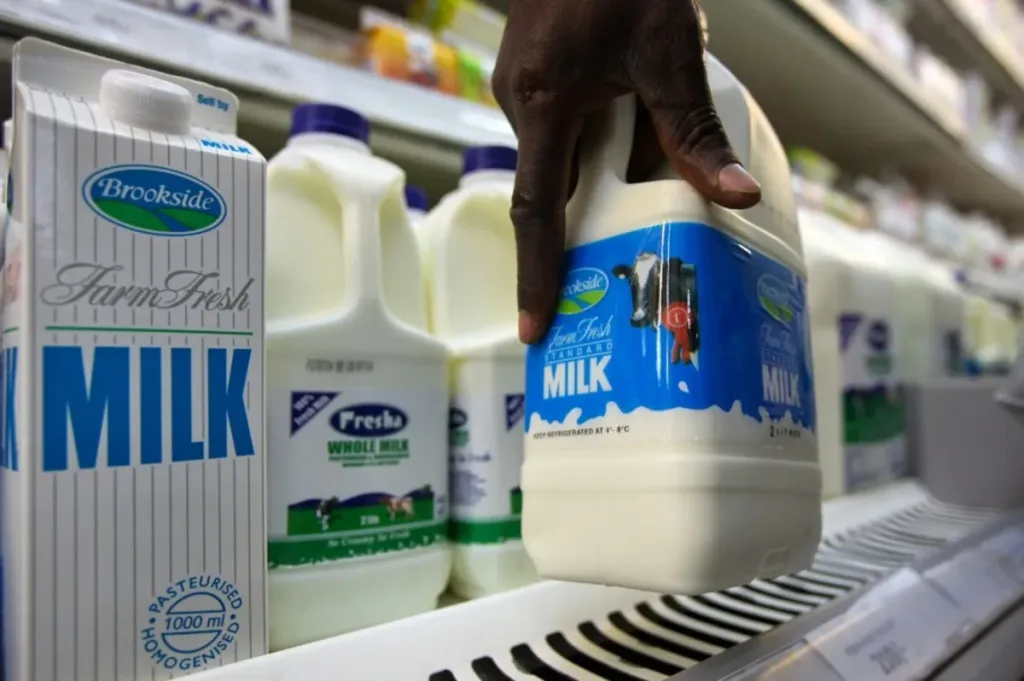
If NCBA offers transparency, Brookside Dairy represents scale and operational control. Founded in 1993, Brookside has grown into East Africa’s dominant milk processor, with a market share estimated at 45 per cent of Kenya’s formal dairy industry. It collects from 200,000 farmers daily and processes more than 1.5 million litres of milk each day.
The company is chaired by Muhoho Kenyatta, Uhuru’s younger brother, who is widely seen as the business mind of the family. Under his leadership, Brookside has pursued an aggressive acquisition strategy, buying rival processors in Kenya and expanding into Uganda, Tanzania, and Nigeria.
Its growth culminated in 2014 when Danone, the French food giant, acquired a 40 per cent stake. That deal, one of the largest in Kenya’s agribusiness sector, implied a valuation north of $500 million and brought global governance standards to the company.
But Brookside’s regional strategy has not been without setbacks. In early 2023, Kenya’s regulator suspended import permits for powdered milk from Brookside’s Ugandan subsidiary, effectively cutting off access to the Kenyan market. The move was seen in part as political retaliation, given Uhuru Kenyatta’s fraught relationship with the William Ruto administration.
Uganda lobbied furiously and, by 2024, secured a two-year window for its milk to be exported to Algeria instead. That lifeline kept the Ugandan subsidiary afloat but underscored the fragility of a business model heavily dependent on political goodwill.
For valuation purposes, Brookside’s 60 per cent Kenyatta family stake could reasonably be worth $250–350 million today, down from the implied valuation at the time of Danone’s entry but still one of the region’s most valuable agribusiness assets. Its future hinges on trade diplomacy. If Kenya and Uganda normalise dairy trade, Brookside’s earnings could rebound sharply. If not, its valuation may stagnate.
Land and real estate: The historic bedrock
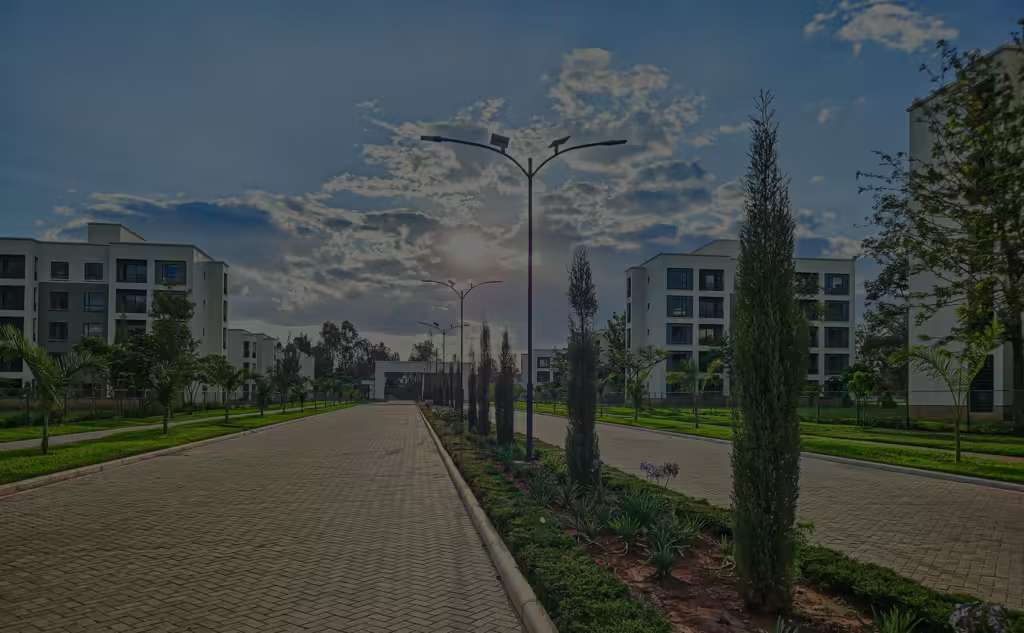
No discussion of Kenyatta’s wealth can avoid land. Since independence, the family has been one of Kenya’s largest landowners, with holdings spread across Nairobi, Rift Valley, Central Kenya, and the coast. These include ranches, commercial estates, and urban parcels that have appreciated over decades of urban expansion.
The crown jewel is Northlands, a vast tract near Ruiru on Nairobi’s expanding northeastern frontier. Plans for Northlands City envision a mixed-use development with housing for more than 200,000 residents, industrial parks, shopping centres, schools, and conservation zones. Of its 11,000 acres, roughly 3,500 are earmarked for housing and another 3,000 for industry, with the remainder for agriculture and conservation.
Valuing Northlands is tricky. Land in Nairobi’s satellite cities can sell for KES 25–30 million per acre. At that price, even partial development could yield hundreds of billions of shillings. But land at this scale is illiquid. Converting raw acreage into cash requires infrastructure build-out, rezoning, and political stability. The invasion of Northlands in 2023 highlighted the risks.
Beyond Northlands, the Kenyattas are believed to own large tracts in Laikipia, Nakuru, and coastal counties, as well as urban properties in Nairobi. Together, these holdings may make the family the single largest private landowner in Kenya. Yet the political sensitivities around land mean that valuations are rarely disclosed and often contested. For the Kenyattas, land is both wealth and a lightning rod.
Media: Influence more than profit
If banking provides liquidity and dairy provides scale, media offers influence. Mediamax Network, which the family controls, runs K24 TV, People Daily, Kameme FM, and several other outlets.
Financially, the business has struggled. Kenya’s media sector has been battered by falling advertising revenues, rising competition from digital platforms, and high costs. In July 2025, Mediamax announced another round of layoffs, cutting nearly a third of its staff. It was the latest in a series of retrenchments that have reduced the company’s footprint.
But the Kenyattas have never treated Mediamax as purely a financial asset. It functions as a political tool, amplifying narratives favourable to the family and providing leverage in Kenya’s fiercely contested information space. In a country where media shapes political legitimacy, that soft power is valuable even if the balance sheet is weak.
Offshore holdings: The Pandora Papers
The 2021 Pandora Papers offered a rare glimpse into the offshore dimension of the Kenyatta fortune. Documents showed that the family had set up companies and trusts in Panama and the British Virgin Islands, some holding stocks and bonds worth at least $30 million. Beneficiaries included Uhuru Kenyatta, his mother, and his siblings.
The revelations did not allege illegality. Offshore structures are common among wealthy families seeking confidentiality and diversification. But in Kenya, where debates about inequality and corruption are politically potent, the disclosures fueled criticism. They confirmed what many suspected: that the Kenyattas had quietly globalised their wealth, hedging against domestic political and market risk.
A range, not a number
Trying to affix a single valuation to the Kenyatta fortune is a fool’s errand. But triangulation allows for a conservative range. The family’s stake in NCBA is worth about $110 million at current market prices. Brookside could reasonably be valued at $400–600 million, with the family’s share amounting to $250–350 million. Offshore holdings add at least $30–50 million. Media assets are marginal financially, but politically significant. Land, the biggest piece of all, is hardest to price. At Nairobi-area market comparables, Northlands alone could unlock hundreds of billions of shillings in long-term value.
Taken together, the Kenyatta empire is worth at least $500–750 million. More aggressive valuations that mark land closer to market prices could push the figure over $1 billion. But unlike Nigerian oil magnates or South African mining billionaires, the Kenyattas’ wealth is less about cash flow and more about embedded political economy. It is durable, but also vulnerable.
Political risk
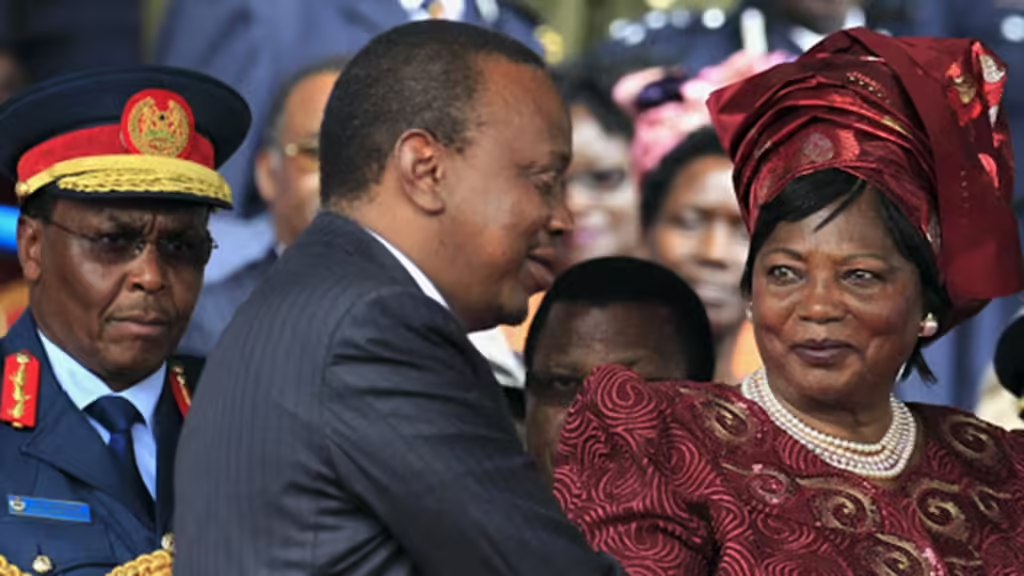
More than any other wealthy Kenyan family, the Kenyattas’ fortunes are bound up with politics. Their banking assets are subject to central bank oversight. Their dairy operations are exposed to trade diplomacy and regulatory discretion. Their land is a constant point of populist attack. And their offshore holdings, while safe, expose them to narrative risks around inequality.
The invasion of Northlands showed that even physical security cannot be taken for granted. The suspension of Brookside Uganda’s export permits showed that earnings can evaporate with a bureaucratic decision. The Pandora Papers showed that scrutiny is global, not just local.
For the Kenyattas, wealth is not simply about balance sheets. It is about navigating Kenya’s political economy—alliances, rivalries, and the enduring question of legitimacy.
Looking forward
Looking forward, several developments will shape the trajectory of the Kenyatta fortune. NCBA remains a reliable cash machine, and any increases in payout ratios or special dividends would signal the family’s liquidity preferences. Brookside’s future depends on whether Kenya and Uganda can settle their dairy trade dispute or whether the Algeria corridor becomes permanent. Northlands’ fate will be determined by infrastructure investment and the family’s ability to shield the project from political hostility. And Mediamax’s retrenchments will either stabilise the business or foreshadow deeper retreat.
The longer-term question is generational. Uhuru Kenyatta has stepped back from day-to-day business. Muhoho Kenyatta remains the operational head of Brookside. But the next generation of Kenyattas will soon be expected to take leadership. How they do so will determine whether the family fortune evolves into a modern, professionalised conglomerate—or remains a political dynasty with business interests on the side.
For now, the Kenyatta family remains what it has been since independence: Kenya’s most prominent fusion of politics and wealth. Their fortune may be elusive to count, but its influence is everywhere—in the banks that finance the economy, the milk on supermarket shelves, the land on the edges of the capital, and the media outlets that shape the national conversation.
And as the events of March 2023 showed, it is also contested.
ALSO READ: Jimi Wanjigi: The billionaire political kingmaker at war with President Ruto

